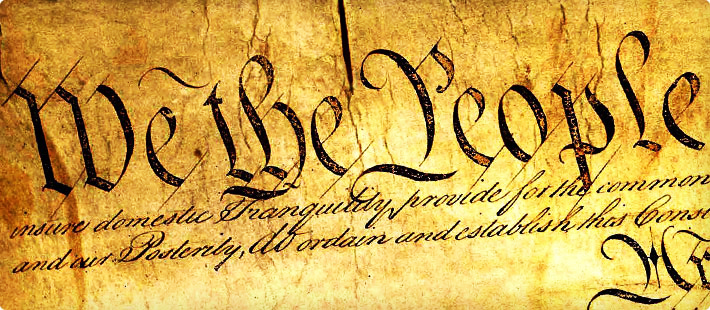|
“In these sentiments, Sir, I agree to this Constitution with all its faults, if they are such; because I think a general Government necessary for us, and there is no form of Government but what may be a blessing to the people if well administered, and believe farther that this is likely to be well administered for a course of years, and can only end in Despotism, as other forms have done before it, when the people shall become so corrupted as to need despotic Government, being incapable of any other.”
Franklin understood human nature. He suspected the government created by the Constitution would eventually fail. But not because of any specific structural defect that may exist in the document itself. He said that the Constitution would be “well administered for a course of years.”
But he predicted it would go off the rails if the people did not do their job in keeping that government within its limits. At that point, it would become incapable of operating under anything other than despotism.
Franklin wasn’t alone in his concerns about the people holding the government within its constitutional limits. Roger Sherman argued during the ratification debates that no document “ever yet bound the supreme power longer than the honey moon of a new married couple, unless the rulers were interested in preserving the rights.”
Despite his concerns, which focused heavily on issues like executive power, representation, and the structure of the legislative branch, Franklin pushed for unanimous support.
But he urged delegates to “turn our future Thoughts and Endeavours to the Means of having it well administered.”
Ultimately, for Franklin – who actually submitted the first proposal for an Articles of Confederation in 1775 – it would be up to the people to defend and protect their own constitution and their own liberty, whether the government did its job, or not.
John Dickinson pushed that kind of message forward during the ratification debates as well. He argued that enforcement of the Constitution ultimately comes down to the “supreme sovereignty of the people.”
“It is their duty to watch, and their right to take care, that the Constitution be preserved; or in the Roman phrase on perilous occasions – to provide that the Republic receive no damage.”
That’s a “Constitution Day” message we all need to be aware of.
__________
“Remember, Democracy never lasts long. It soon
wastes, exhausts and murders itself! There was never
a Democracy that did not commit suicide.”
– Samuel Adams
.

“As government expands, liberty contracts.” ― Ronald Reagan
.

“A primary object should be the education of our youth in the science of government. In a republic, what species of knowledge can be equally important? And what duty more pressing than communicating it to those who are to be the future guardians of the liberties of the country?” ― George Washington
.
.
|




